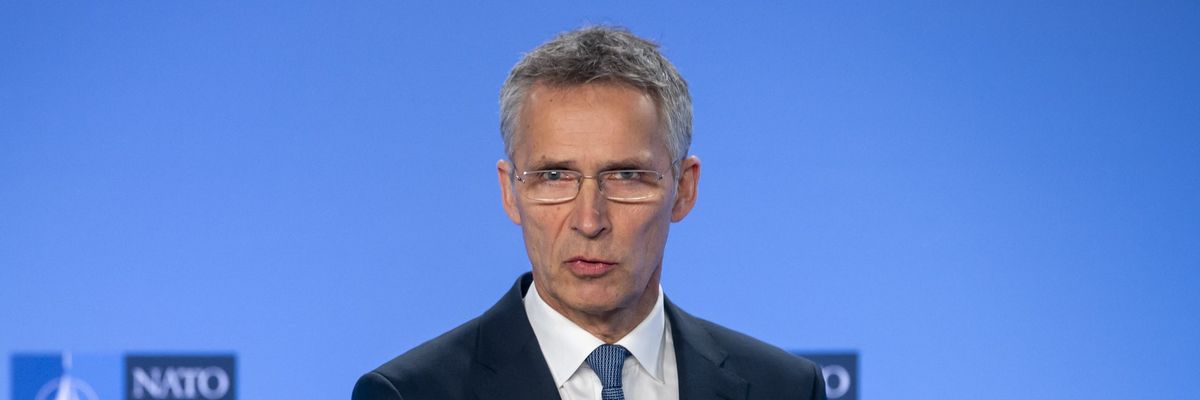NATO ministers today doubled down on their "open-door" policy to Ukraine, with NATO chief Jens Stoltenberg saying Russia would not deter NATO expansion.
“President Putin cannot deny sovereign nations to make their own sovereign decisions that are not a threat to Russia,” the former Norwegian prime minister said. “I think what he’s afraid of is democracy and freedom, and that’s the main challenge for him.”
He recalled that North Macedonia and Montenegro had recently joined NATO and predicted that Russian President Vladimir Putin “will get Finland and Sweden as NATO members” soon.
A provocative choice of words, as Stoltenberg and NATO officials and the greater foreign policy establishment have long tried to play down the role that NATO expansion has played over the last 30 years in the deterioration of the West-Russia relationship, as well as Moscow's illegal invasion of Ukraine in February.
Others disagree, of course. "NATO expansion was the most profound strategic blunder made since the end of the Cold War," Jack Matlock, former U.S. Ambassador to the Soviet Union, wrote bluntly for RS in February.
Nevertheless, it is widely known that NATO had no intention of approving Ukraine's membership before Russia's invasion, but the U.S. never offered that assurance to Russia; nor did it dissuade Kyiv of the notion. NATO continues to dangle the prospect to the Ukrainians, however, who have been devastated not only by the military invasion but also by a staggering economic crisis, massive displacement and emigration, and indefinite dependence on NATO member states to stay afloat.
Yet when he applied for an accelerated welcome into that "open door" this fall, President Zelensky's request landed with a thud.
NATO ministers absolutely want to send Putin a message about NATO — it will expand wherever and whenever it wishes. But are they sending the wrong signals to Ukraine? Some say NATO has been doing this all along, dating back to the first time President George W. Bush announced the open door to Ukraine and Georgia during the NATO Bucharest meeting in 2008.
"NATO has repeated the formulation at every summit and ministerial meeting, and, until just before Putin’s 2022 invasion, top leaders of the Biden administration were still harping on NATO’s 'open door' to Ukraine’s membership, even though it is a fantasy," former U.S. Ambassador to NATO Robert Hunter wrote for in March. He continued:
Indeed, the “will become members” statement, repeated over and over, created a political and moral commitment to Ukraine (and to Georgia), raising legitimate expectations but with no honest intention of fulfilling them, while providing no deterrence of possible (now actual) Russian aggression: for these two countries the worst of all worlds.
By extension, the failure of NATO, especially its leader, the United States, at least so far to honor the full meaning of the “will become members” pledge is creating a deep crisis of credibility for both NATO and the U.S.
Hunter wrote that eight months ago, mind you. And yet, the open door pledge is reaffirmed like an incantation once again. Perhaps the alliance sees it as a pox on Russia, but, by never backing it up with real intention while Ukrainians fight for their lives in a hot war, might it be a curse — in a very thin disguise — on Ukraine too?
















